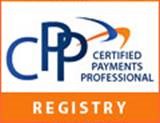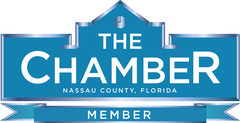|
In the program guide that every merchant signs and agrees to states, “IF THE TERMINAL FAILS TO READ THE MAGNETIC STRIPE OR IF YOU ARE REQUIRED TO OBTAIN A VOICE AUTHORIZATION, THEN YOU MUST IMPRINT THE CARD.” When an account is approved a “merchant metal plate: is mailed out. Not only should you have an imprint of the card, but the merchant info from the “plate” should also be included. Now is a good time to pull this back out and be sure you have an imprinter and imprinter slips. If you need help with this let me know. Let me know if you want a full copy of the guide. I would like to add about the new cards will be issued soon to consumers called EMV cards with an embedded chip, also referred to as smart cards. These cards are reported nearly impossible to counterfeit because the chip stores unique info that is constantly changing as the card is used. Cards in use today use a magnetic strip that can be easily replicated and counterfeited. Merchants will need to have the proper equipment to accept these new cards no later than October 2015.
I urge you to take the time to review the following: IF THE TERMINAL FAILS TO READ THE MAGNETIC STRIPE OR IF YOU ARE REQUIRED TO OBTAIN A VOICE AUTHORIZATION, THEN YOU MUST IMPRINT THE CARD. IN ADDITION, THE SALES DRAFT MUST HAVE THE CARD HOLDER’S SIGNATURE. FAILURE TO FOLLOW THESE PROCEDURES WILL PREVENT YOU FROM DEFENDING A TRANSACTION IN THE EVENT THAT IT IS CHARGED BACK UNDER A CLAIM THAT THE RIGHTFUL CARDHOLDER DID NOT AUTHORIZE THE PURCHASE. ENTERING IN INFORMATION INTO A TERMINAL MANUALLY WILL NOT PREVENT THIS TYPE OF CHARGEBACK. While we are at it, I wanted to share the portion addressing businesses that do not accept a card in person. Mail/Telephone/Internet (Ecommerce) Orders and Other Card Not Present Sales. You may only engage in mail/telephone/Internet orders provided they do not exceed the percentage of your total payment Card volume reflected on your application. Failure to adhere to this requirement may result in cancellation of your Agreement. Merchants conducting Internet transactions using MasterCard or Visa Cards must have special codes (an “Electronic Commerce Indicator”) added to their authorization and settlement records. Discover Network does not use an Electronic Commerce Indicator. Failure to register as a merchant conducting Internet transaction can result in fines imposed by the Associations. Mail/Telephone/Internet and other Card Not Present transactions have a sub statically higher risk of Chargeback. Since you will not have an imprinted or magnetically swiped transaction and you will not have the Cardholder’s signature on the Sales Draft as you would in a face-to-face transaction, you will assume all risk associated with accepting a mail/telephone/Internet or other Card Not Present transaction. The following procedures, while they will not eliminate Chargebacks, are useful in reducing them and should be followed by you:
Discover Network Card Not Present Transactions, and if you do not receive a positive match through AVS, you may not process the Discover Network Card Not Present Transaction. If you do not have AVS, contact us immediately.
– Merchandise return and refund policy; – Customer service contact, including email address and/or telephone number; – Transaction currency (U.S. dollars, unless permission is otherwise received from Servicers); – Any applicable export or legal restrictions; – Delivery policy; – Consumer data privacy policy; – A description of the transaction security used on your website; and – The sale or disclosure of databases containing Cardholder account numbers, personal information, or other Card transaction information to third parties is prohibited.
NOTE: Address Verification Service (“AVS”) does not guarantee against Chargebacks, but used properly, it assists you in reducing the risk of fraud by confirming whether certain elements of the billing address provided by your customer match the billing address maintained by the Issuer. AVS also may help you avoid incurring additional interchange expenses. AVS is a separate process from obtaining an Authorization and will provide a separate response. A transaction may not match addresses when submitted for AVS and still receive an Authorization. It is your responsibility to monitor the AVS responses and use the information provided to avoid high-risk transactions. 3.2.1. Discover Network Protocol for Internet Transactions. Each Internet Discover Network Card transaction accepted by you and submitted to us shall comply with Discover Network standards, including, without limitation, Discover Network standards governing the formatting, transmission and encryption of data, referred to as the “designated protocol.” You shall accept only those Internet Discover Network Card transactions that are encrypted in accordance with the designated protocol. As of the date of these Operating Procedures, the designated protocol for the encryption of data is Secure Socket Layer (SSL). We may, at our discretion, withhold Settlement until security standards can be verified. However, the designated protocol, including any specifications with respect to data encryption, may change at any time upon thirty (30) days advance written notice. You shall not accept any Internet Discover Network Card transaction unless the transaction is sent by means of a browser which supports the designated protocol.
0 Comments
Leave a Reply. |
First Coast PAYMENTS BLOGWe eliminate the junk fees others charge. Archives
June 2024
Categories
All
|
Credit Card Processing for small to mid-size businesses. We eliminate the junk fees.
Serving Northeast Florida, including Jacksonville, Fernandina Beach, Yulee, and beyond.
Admin | Privacy
Site powered by eCoalitions.net
First Coast Payments is a registered agent office for several ISO/MSP. Disclosure.
© 2024 First Coast Payments. All Rights Reserved.
Serving Northeast Florida, including Jacksonville, Fernandina Beach, Yulee, and beyond.
Admin | Privacy
Site powered by eCoalitions.net
First Coast Payments is a registered agent office for several ISO/MSP. Disclosure.
© 2024 First Coast Payments. All Rights Reserved.

 RSS Feed
RSS Feed

